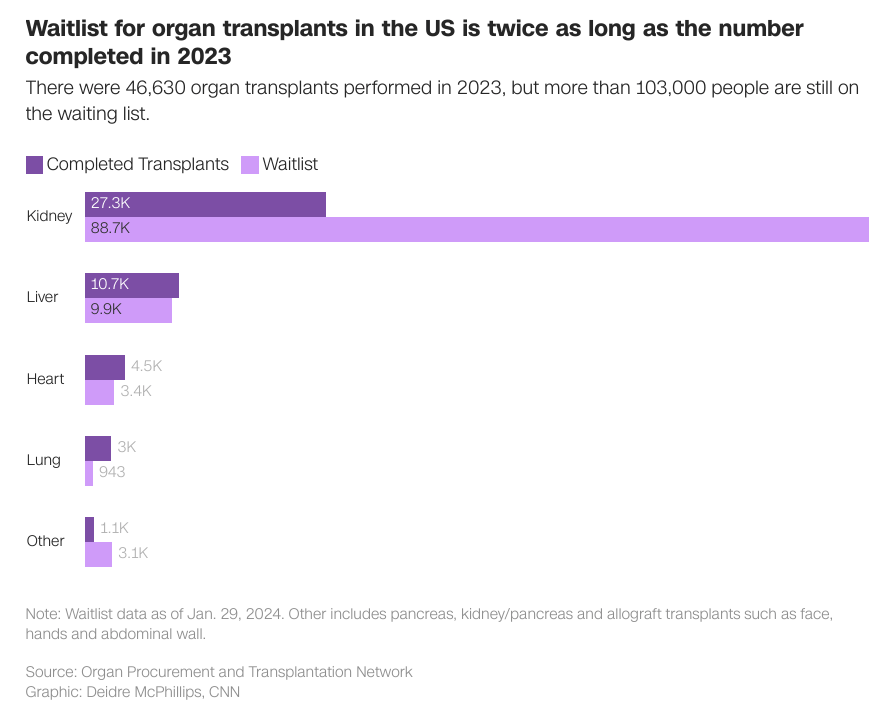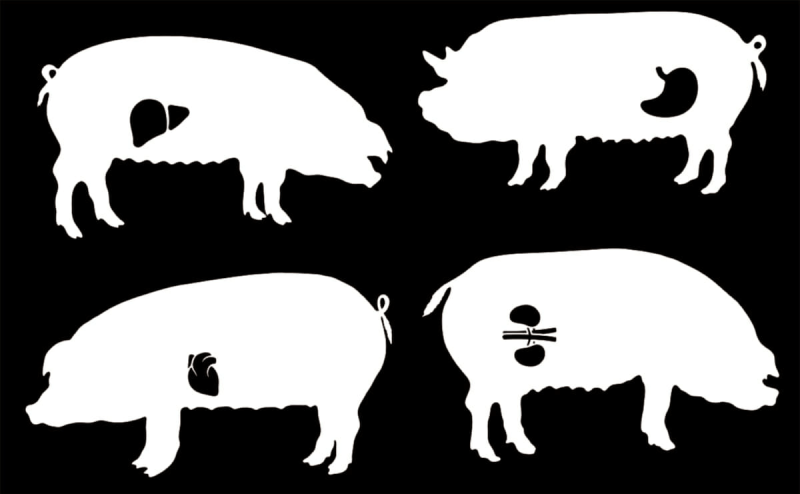The need for more transplant organs is immense and growing. Some scientists think animal organs might be a good way to increase the supply, but the science has been stalled as researchers tried to figure out how to prevent organ rejection and avoid dangerous infections. They also have to untangle complicated ethical questions, including how to test such organs.
Researchers have transplanted genetically modified pig kidneys and hearts into people who were brain-dead to test whether they work in humans. [January 18], doctors showed that a pig liver could filter blood when attached to a recently deceased person. [January 25], doctors said they had identified the mix of immunosuppressants needed to prevent pig kidneys from being rejected by human bodies.
And twice, surgeons have transplanted genetically modified hearts into living people: willing test subjects who understood that their deaths were imminent and that no transplant was likely to save them but that xenotransplantation could save many lives in the future.
































